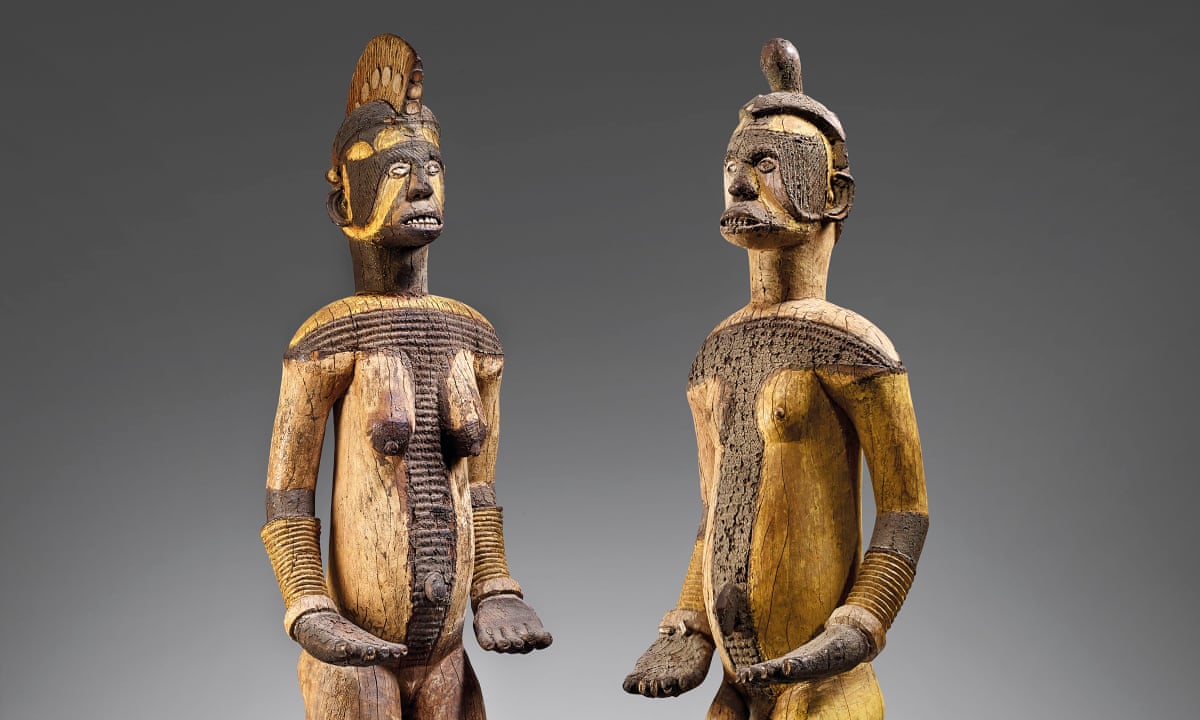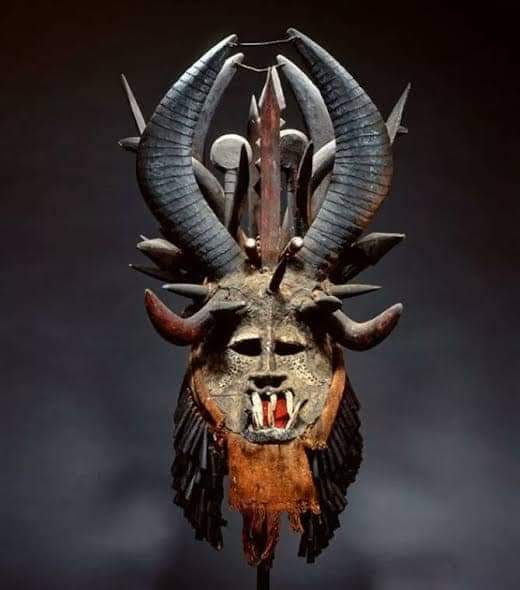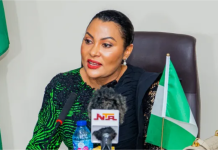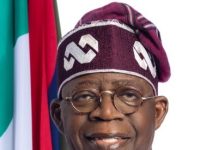In the Igbo cosmic worldview, the spirit realm was divided into three of four tiers,
The first realm was where Chukwu and Ekeh dwelt, it was above the skies, hence known as Elu Igwe,
The second realm was the abode of the Sun and the Agbara of Igbo traditional religion, this was the realm that is relatable to mortals, the realm they pass throught to attain divinity.
The spirit known as Agwu edited between the first two realms and the human world,
Agbara which is an archaic contraption of Ngbara is from an ancient Igboid word meaning power or authority over a place.
Agbara are divinities that inhabit the natural environment and controls all that is within that geographical location, in Igbo cosmology divinites are not like the Greco-Roman deities that rule over human passion or human functions such as love, war, hunting, etc, they ruled the geographical location they hd dominion over,
To settle or pass through the territory, the ancient Igbo believed they had to appease such divinities in order not to trespass hence we hear of supplications and sacrifices to “Agbara nwe miri a” or “Agbara nwe ali”
The Igbo believed that the Agbara ruled over natural locations such as the earth (Ala), the Sky (Igwe), Brooks or fountains (Ngene) Valleys (Ogwugwu), hills and mountains tops (Ugwu), forests (Ikpa) and different Rivers..
Of the prominent Agbara in the igbo cosmos includes,
Ala or Mother Earth, since we all live on the Earth and receive our sustainance from Earth the Igbo sees it as imperative to respect and honour mother earth and offer her all the appeasement possible, Ala worship is central to igbo spirituality, because the Earth is the mother of all, the earth is sacred.. every town in southern igbo used to have a communal altar dedicated to Ala under the title of the town e.g in Egbu it was Ala Egbu deity, Ala Agwa, Ali Ikwerre in Isiokpo etc
The early Northern Igbo were sun worshippers As Anyanwu in igbo cosmology is not an Agbara per se, but an extension of Chukwu, Chukwu was belived to exist in or beyond the sun, Anyanwu is masculine
Anyanwu as the name entails is Anya anwu, the eye (i.e window) of the rays(anwu) from Chukwu, it is the window that opens in heaven through which the cosmic energy from Chukwu shines on Earth, that is why the daylight is known as Chi, and each day is known as ubochi and night as Ujichi(amongst the Owerri)
Anyanwu was thus worshipped as a physical manifestation of Chukwu who is far away, the Eze Nri was very well known to be specialized in the sun cult, the sun cult is associated with igbu ichi, which is the ritual art of divinization through scarification mimicking the rays of the sun, (igbu ichi – putting on the marks of chi)
Igwe was the sky being, or the personification of the sky, it’s cult was prominent Amongst the Oru and the Isuama.
Ngene worship was viewed as the worship of the Forest or the source of life, Ngene is a small spring deity, or rather there are many Ngenes so it easily became alusi with time.
There was the Agbara nwe Miri, the divinities that rules over water bodies named after them, such as Otamiri, Imo, Oshimili, Orashi, Ogbuide, Njaba etc
Some of these Agbara as they become more personalized from town to town took on the roles of Alusi,

ALUSI/ARUSHI
Arushi whose name means to do a work or to bring a work to completion to the person that contracted you are lesser deities or spirits contracted by the Igbo on the basis o functionality and not geography,
Arushi is an effigy or amulet with a spirit or lesser deities invoked into it to perform the Bidding of the devotee, it serves for particular functions, such as war, fertility, farming prowess, hunting, oath, or prophecy,
Most oracles in Igbo history are Arushi, they work on contract basis, and to enact an Arushi into a place, the effigy or contact figure has to be made and the spirit invoked in through sacrifice (which could vary from simple offering to animal sacrifice and even human sacrifice)
Arushi effigies always have their hands stretched out to receive offerings or petitions
There are a myriad of Arushi in igbo land, even a single town having many at once, tht it is not possible to recount them all, Arushi can be replicated from town to town based on it’s effectiveness and popularity such that people couldale copies from the original shrine and carry it with them back to their home villages and install it their… This is how some Arushi got popular over a geographical area when compared with others.
Some of the most prominent Arushi in Igbo land were Amadioha, Ahianjoku, Kamalu, Ekwensu, Ikenga, The different Ogwugwu and Ngene, Ojukwu, etc
I’ll talk briefly about Amadioha, Amadioha who has been a source of so much romanticization and embellishment as in the fashion of Greco-Roman Zeus or Viking Thor is far from that.
Amadioha is a personification and deification of legal codes and law enforcement enshrined in Ala worship and guarded by the spirit or oracle under whom the oath guarding the laws were made,
In simpler terms it is a deity of justice, the thunder embellishments we’re later additions,
Although to be an Amadi one hs to be a free born but the name Amadioha does not mean free born, it comes from the verb Ama (from where u derive ima iwu, i.e legal codes or enactments) and Dioha – of the masters of the community, the masters here being the Diala who sever as law enforcers.
Thus it means a legal codes enacted by the masters of the land, personified in the oracle at Ozuzu,
The Nde Amaala and Nde Amadi in Echie came together to enshrine their laws under the protection of the a titular deity who became the titular deity of Echie people, anybody who breaks the sacred laws of the land or committed any sacrilege against his neighbor would be struck dead by the deity, that is the origin of Amadioha, the popularity of the oracle spread through Ikwerre and Owerri, and with time it was replicated by Echie priests over other parts of Southern igbo,
One place amadioha spread to was Umunoha, with the Help of Aro mercenaries, Echie priests under Nnoha took over the place and established Amadioha oracle on an already existing Igwe temple used by the Isuama people to honour the Sky Agbara,The new Igwekaala shrine became a popular oracle for people who went to swear, who went looking for justice or to arbitrate cases.
This associations with Igwe is what is what has led to the confusion of Amadioha taking Over Igwe attributes as an Agbara over the sky, like wise the merging of the Amadioha Ozuzu shrine with Kamalu whose effigy the Aro installed at Ozuzu led to the association with thunder and rain and lightning, Kamalu is an Arushi of Agriculture and weather from the Cross River area, it was a deity of Masculine prowess in farming, war and fecundity, it’s association with thunder and lightning gave that appellation to Amadioha. You see, when the Aro sojourned into Southern Igbo, they set up Kamalu shrines on already existing Amadioha oracles, but we Southern igbo have always been able to tell which is which. Other places the Echie established Amadioha Oracles were in Uzoagba and Eziama,Other popular Arushi includes Ekwensu na Ikenga,
Ikenga is an amulet or effigy meant to represent strength and skill as stored in ones right hand, its function was to channel energy from the Devotees patron and chi to the Devotee, his handiwork or endeavours, every titled man had Ikenga, even the various Arushi had Ikenga.
One particular Arushi associated with Ikenga was Ekwensu, Ekwensu was a spirit of violence, bravado, restlessness and Machismo,Children who were often of violent temperament or ADHD children were often thought to be possessed by Ekwensu,People used to go to Ekwensu alters to ask for vengeance.
Ekwensu is the Arushi of bargains, tricks and war. As such his restlessness is out to good use by warriors such that igbo communities.with long standing history of conflict and wars often have Ekwensu in their pantheon,
Ekwensu is a major deity amongst most Anioma communities such as Ibusa, Asaba, Ogwashi-Uku, parts of Ukwuani and Ossomari.
Ahajoku on the other hand is an Arushi specifically dedicated to the yam cult, Ahajoku is masculine and a patron of farmers, he is the Arushi that ensures success in yam cultivation,All invested Ezeji are qualified chief priests to Ahajoku, Ahajoku guides the taboos and social conducts of all the Ezeji in the community. Someone who is divined as an incarnation of Ahajioku or a priest of Ahajoku is often called Osuji or Duruji, while a male child born on new yam festival may also be called Ezeji
One unique differentiation is that in the worship of Agbara an effigy is not required, most Agbara being centered on nature worship is represented by a tree, a stump or a rock, marked with white cloth or red cloth or any cloth or symbol of choice.

Their shrines are denoted as “ihu” or “okpu”
E.g in most Southern Igbo villages in every Kindred’s Uhu or Ohe (i.e homestead) there must be an Ihuali (ihi ala in Echie) or altar or shrine to Ala, it is marked by any of the trees sacred to Ala and a white cloth.
Arushi on the other hand mostly have effigies, Arushi being a product of functionality take personal human qualities, can be either man or woman, a young person or old, a jealous envious deity or a happy jolly one, they are dedicated to a particular function such a war, hunt, masculinity, fertility, love, farming success, wealth, death etc
Arushi can equally be a deified human being e.g Imoka
Edo is the feminine Arushi of Wealth in the Nnewi area, it centers around a daughter of the Agbara called Idemili who was instrumental in the establishment of towns around the Nnewi area. Hence the name Umuanaedo
Ojukwu was an Arushi in the Echie area as well, where people went to consult for Oracles and prophesies (that was her specialty) as well s taking oaths, her shrines spread, but her major shrine was established at Diobu,
Around the same time of the proliferation of Amadioha Oracles from town to town there seemed to have been a proliferation of Ekeh cult as an Arushi in the Owerri and Ngor area (to escape Aro subjugation through religion which may explain why Ekeh surnames are common in that area) and also Arioku and Afor-ukwu Oracles in Enyiogugu and Ohuhu Mbaise
their are so many more Arushi that cannot be enumarated here, each town having it’s own varieties, there is Ogu in the Ngwa, Ndoki and Bonny areas, Mgbadike, Onicha etc but these are the major ones.

NB : Onwuka is the Arushi associated with death in the igbo area..
Ogbunabali is a corruption of the Ikwerre Ogbum nu Abali (Ogbum and Abali) which is a land in between and jointly owned by the communities founded by two brothers Ogbum and Abali.









Comments are closed.